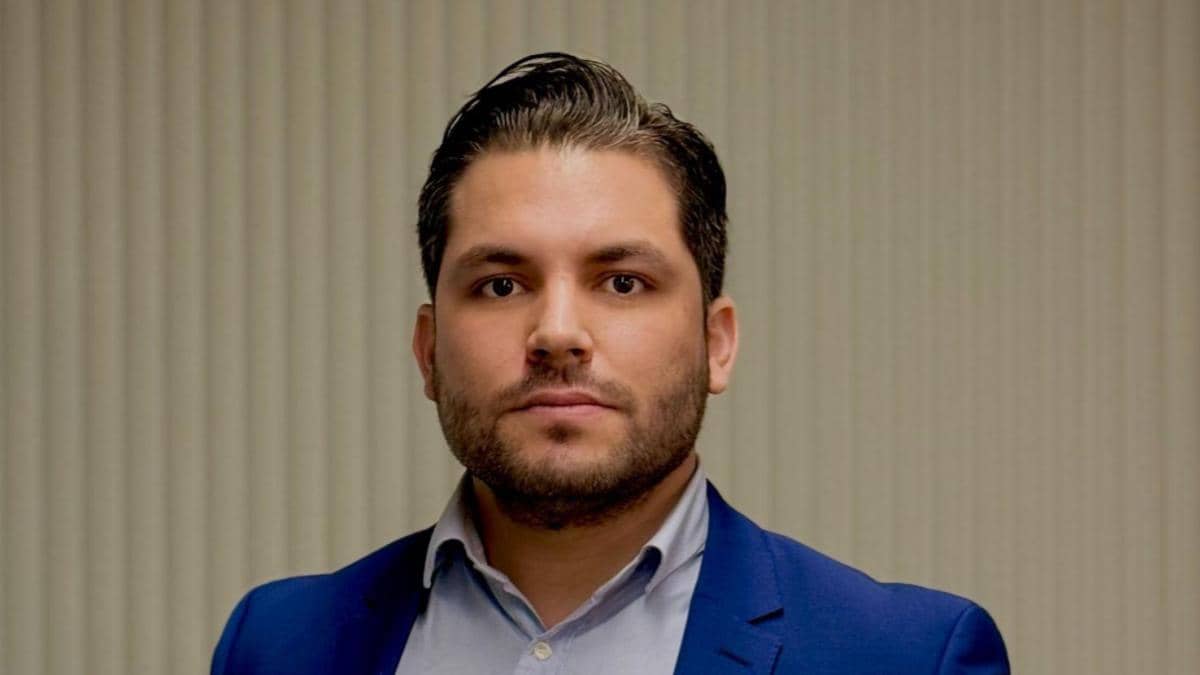Maarten de Lint from GMO is our Sales Manager of the Month

5 JUL, 2023
By Constanza Ramos
Maarten de Lint is engaged in client relations and business development for GMO’s Global Client Relations team located in the Amsterdam office. He covers investors in the Benelux, Ireland, Italy, and Iberia. Prior to joining GMO in 2012, he worked four years for ING in both Seoul and The Hague. He graduated from Maastricht University, The Netherlands, with a MSc. in International Business Studies.
1. What made you decide to go into the financial sector? Did you have any other vocations?
After completing my master's in international business studies almost two decades ago at Maastricht University in the Netherlands, all I was interested in was going on an adventure. I travelled overland to South Korea (where I had been an exchange student before), signed up for Korean language studies, and started to look for a job so I could stay in Seoul. It was not easy to find a full-time job in Korea as a foreign young graduate. But eventually, following some local pension fund reforms, I was offered a position to help set up a new retirement service department as part of the Korean branch of a Dutch life insurance company.
Quite to my own surprise, I enjoyed that first job in the financial world a lot, and I have had no reason to consider switching to a different industry since. As I have many interests, it is easy for me to imagine that I could have taken a completely different career path. So, I suppose you could say that, like many things in life, my employment in the financial sector is rooted in coincidence.
2. Could you tell me the most difficult aspects of your job and also the most positive ones?
While I live in Amsterdam, I service investors throughout continental Europe. I enjoy travelling and experiencing different cultures, and I consider working with clients in various countries one of the most rewarding aspects of my job. The ability to help such a wide variety of clients and their underlying beneficiaries reach their financial goals is a great pleasure.
Building long-term relationships with investors lies at the basis of success and since the pandemic, with most people working from home at least part of the week, it has become more challenging and time-consuming than before to organise efficient meeting schedules abroad.
3. In your opinion, what are the key drivers for successful fund distribution?
To successfully distribute a fund throughout Europe with wealth managers and private banks, it is paramount to consider the various requirements and preferences in each country. These requirements, including platform availability, tax and legal considerations, share classes, etc., can be specific to a certain jurisdiction, so combining broad international availability with some custom attributes is a puzzle worth solving.
4. What is the most exciting thing you have seen in the markets since you started working in the financial sector?
There are two periods in capital markets that immediately come to mind. I started my first job in 2007, on the cusp of what we now refer to as the Global Financial Crisis (GFC), which was certainly an interesting time to work through. When the long bull market following the GFC abruptly ended with the outbreak of the pandemic, another interesting and volatile episode – one that I would consider to be ongoing – commenced. Compared to these two periods, the decade or so in between feels like a long and slow grind.
5. What investment products do you believe would be more interesting in the next 5 years?
Looking at the broad market, 2010 to 2019 was the worst decade ever for value investing, immediately followed by the worst year ever in 2020. Consequently, towards the end of 2020, the valuation differential between value and growth stocks reached historically extreme levels. Value deserves a significant comeback, and I think we have only seen the start of it. There are various ways to exploit the extreme divergence, from long only (deep) value equities (adjusted for quality) to market neutral long value/short growth alternatives. From a thematic standpoint, I wouldn’t be surprised if valuation-sensitive equites in the climate change and resource sectors along with companies that can be characterised as quality continue to do well.
6. What is your favourite thing to do when you disconnect from the markets?
Some things I really enjoy are cooking, watching movies in one of Amsterdam’s many arthouse cinemas, and climbing. But above all, whether it’s a long overland backpacking trip or simply a weekend away in The Netherlands, I love to travel and explore new places.


